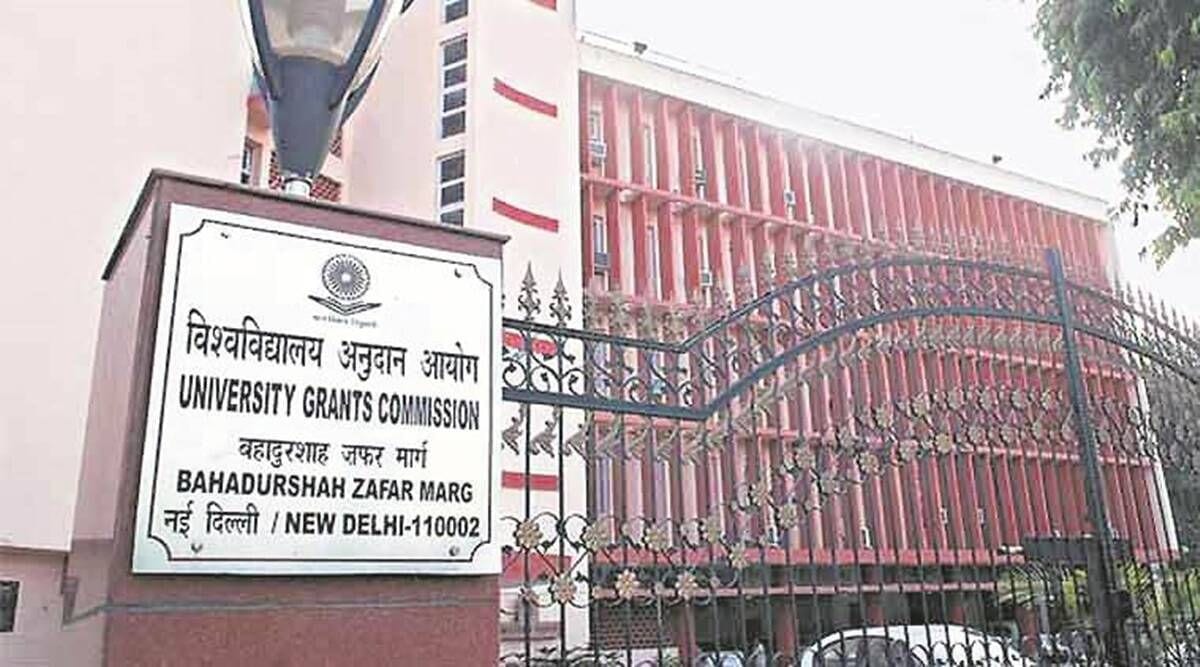New UGC Norms: Foreign universities can set up campus, decide fee, repatriate funds
While this is in step with the National Education Policy, 2020, which envisages a legislative framework to allow top global universities to operate in India, attempts made in the past, including by the UPA government, faced resistance, including from the BJP which was in the Opposition then, and the Left parties.
 Initially, the universities will be granted approval to operate for 10 years. (Representative image. File)
Initially, the universities will be granted approval to operate for 10 years. (Representative image. File) FOREIGN universities can set up their campuses in India, decide their admission process, fee structure, and will also be able to repatriate funds to their parent campuses according to draft norms announced by the University Grants Commission (UGC) chairperson M Jagadesh Kumar here Thursday.
While this is in step with the National Education Policy, 2020, which envisages a legislative framework to allow top global universities to operate in India, attempts made in the past, including by the UPA government, faced resistance, including from the BJP which was in the Opposition then, and the Left parties.
While the draft UGC (Setting up and Operation of Campuses of Foreign Higher Educational Institutions in India) Regulations 2023, released after Kumar’s announcement, seeks to offer considerable freedom to foreign education players willing to explore the Indian market, it underlines that they shall not offer any such “programme of study that jeopardises the national interest of India or the standards of higher education in India”.
“The operation of Foreign Higher Educational Institutions shall not be contrary to the sovereignty and integrity of India, the security of the State, friendly relations with foreign States, public order, decency, or morality,” the draft adds.
Asked if the clause is too restrictive in nature, Kumar said any aggrieved party will have the right to approach the judiciary.
“Let’s not read too much into that (the clause on national interest). There are going to be very exceptional cases where there could be issues related to national interest. And in case any action is taken by UGC and if the aggrieved parties think it is not right, we have a well-established judicial system in the country. Therefore, I do not think there is any problem with regards to that clause,” he said.
A few universities based in Europe have already shown “keen interest” in setting shop in India, Kumar said, adding that courses offered by the offshore campuses of the foreign universities are likely to be diverse, such as in the fields of urban design and fashion design, and need not be restricted to traditionally popular disciplines like computer science and engineering.
The decision to allow foreign universities to repatriate funds to parent campuses is significant as this was a perennial sticking point. “Cross-border movement of funds and maintenance of Foreign Currency Accounts, mode of payments, remittance, repatriation, and sale of proceeds, if any, shall be as per the Foreign Exchange Management Act (FEMA) 1999 and its Rules,” reads the draft.
The first indication that the Centre was adopting a liberal approach on this matter was sent out when foreign institutes willing to set up campuses in Gujarat’s GIFT city were given the go-ahead to repatriate funds. The GIFT city, however, will remain outside the purview of the UGC regulations, which are likely to be notified by the end of January 2023, Kumar said.
“This has been an area in which there has been some debate. Now it is very clear in these regulations that the campus established by the foreign HEI can repatriate the funds generated by the campus. The audit report should be submitted annually to the commission certifying that the operations are under FEMA Act 1999 and its rules,” he said.
Initially, universities will be granted approval to operate for 10 years. At the end of the ninth year, they will have to file for renewal of approval, Kumar said. Universities that participate in global rankings will require a place in the top 500 — either in the overall or subject-wise category — to apply to set up campuses in India, while those that do not participate in such rankings will need to be “reputed” in their respective countries.
“The campuses will have the freedom to decide their own fee structure. However, the regulations specify that the fee structure should be transparent and reasonable. Regulations also say that they will be free to provide need-based scholarships,” Kumar said.
The regulations also provide foreign institutions complete autonomy to hire faculty and other staff members either from abroad or India.
The regulations underline that foreign faculty appointed to teach at the Indian campus shall stay for a reasonable period, which, said Kumar, was aimed at ensuring that institutes do not make them serve like visiting faculty.
Asked if the UGC has carried out any research to gauge whether foreign higher educational institutions are interested in investing in India, Kumar pointed out that in 2022 over 4.5 lakh Indian students went abroad to study, leading to outflow of estimated $28-30 billion.
“This will also ensure that all our students — there are around 40 million pursuing higher education — have access to global quality education. At least, the living cost will be minimised as compared to studying abroad,” he said, adding that foreign universities will not make their fee structure too prohibitive.
The application process will be web-based, with the UGC going to maintain a separate portal for receiving proposals to set up campuses. A committee formed by the commission will evaluate the applications and make recommendations within 45 days of receiving them.
“The selected applicants will be given about two years to set up campuses,” Kumar said, adding that the institutes will have to ensure that the quality of education in the Indian campuses is at par with the parent campuses.
Moreover, they will have to mandatorily impart education in offline mode as online classes shall not be allowed.
The repatriation of funds and other cross-border movement of funds shall be governed by the Foreign Exchange Management Act, 1999, he said. The UGC will have the right to inspect the campuses at any time, he stressed, adding that they will not be outside the purview of anti-ragging and other criminal laws.
- 01
- 02
- 03
- 04
- 05































